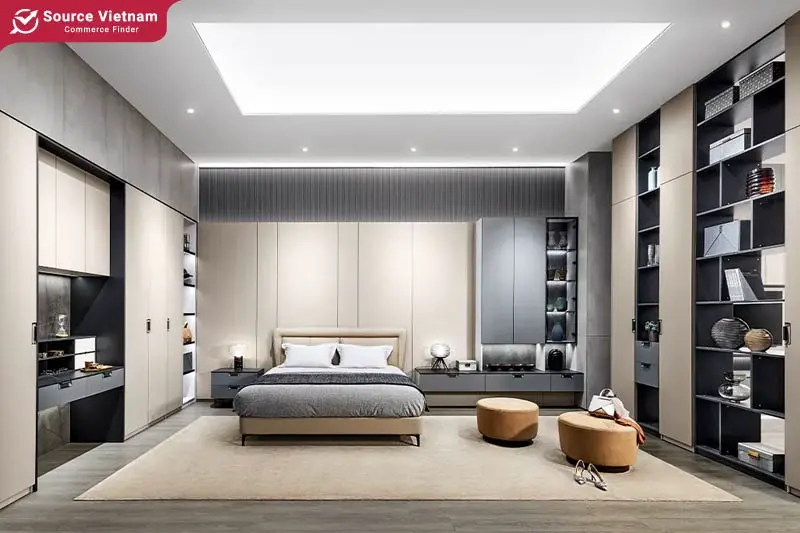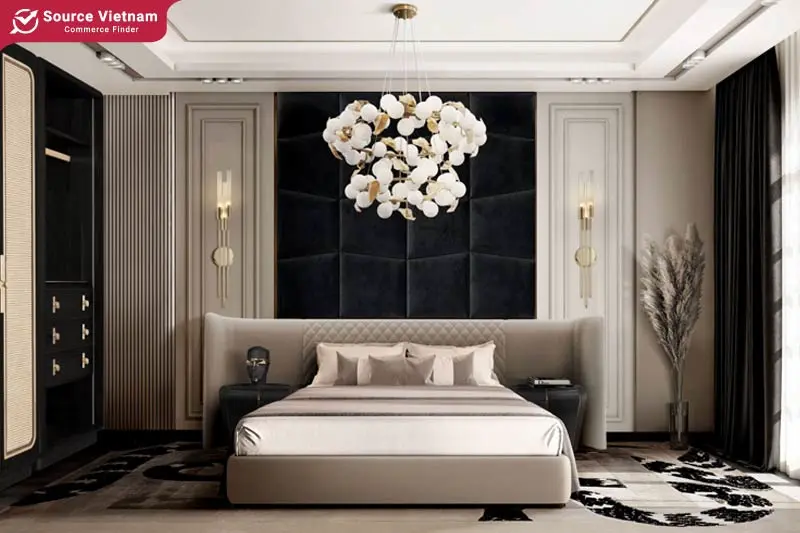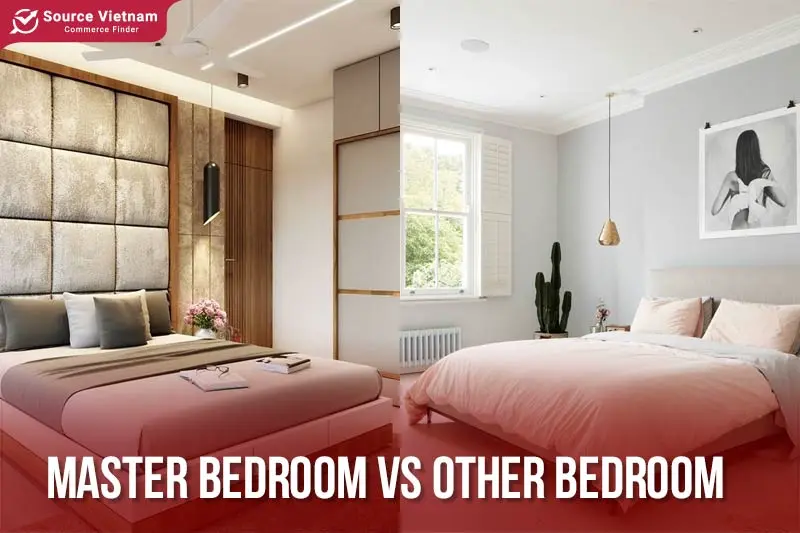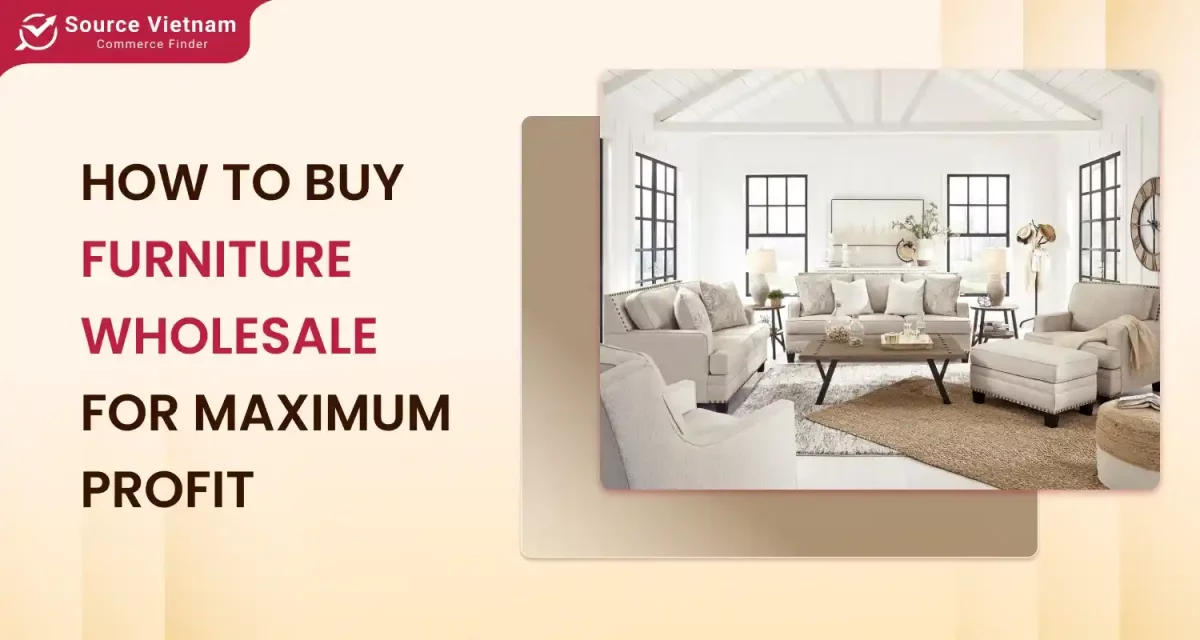Originally, the term “master bedroom” referred to the largest bedroom in a house, intended for the household head. However, over time, this term has become controversial due to its class-based connotations. Read more to learn why is it called master bedroom.
Insight:
- The term “master bedroom” originated in the early 20th century.
- It has since evolved and become a subject of debate.
- Nowadays, it has fallen out of favor and is often substituted with alternative terms.
Historical terminology of the term “Master Bedroom”
Where did the term master bedroom come from? In the past, if a house had multiple bedrooms, the largest one was typically called the “master bedroom.” In traditional families, this room would belong to the parents. In shared living situations, the “master bedroom” was often reserved for the primary breadwinner or a couple. Let’s explore the history of master bedroom.
Why is it called master bedroom?
However, nowadays, when house hunting, real estate agents will refer to the largest bedroom as the “primary bedroom.” This shift raises the question: why do they say primary bedroom instead of master bedroom? or why is master bedroom now called primary? What are the differences between a “master bedroom” and a “primary bedroom”?

The term master bedroom origin supposedly appears in the 1920s, first appearing in a Sears catalog article featuring an expensive Dutch Colonial apartment. In the home design history, the largest bedroom was typically reserved for the head of the household, often the man or the parents.
Over time, this term became more common and was generally used for the largest bedroom in a house. In some cases, if the bedroom had an en-suite bathroom, it was referred to as a “master suite”.
How the class system influenced the development of this term
While initially introduced with a simple meaning, the word “master” evokes connotations of ownership and dominance. Historically, “master” has been associated with individuals holding positions of power and authority, such as heads of households, plantation owners, or company owners.
Furthermore, many argue that the use of “master” reflects the structure of traditional families, where the head of the household held the highest status, and their bedroom symbolized power and wealth. This hierarchy between the “master bedroom” and other bedrooms created a subtle social hierarchy within the home, reflecting the differing statuses of family members.
Thus, the choice of “master” to describe the most “powerful” bedroom reflects the cultural and societal norms of that time. It cannot be denied that in traditional societies, the concept of the head of the household and obedience was paramount.
The appearance of this term in architectural blueprints
As society and residential architecture evolved from simple structures with clear room divisions to more complex designs, a more specialized vocabulary was needed. Consequently, “master bedroom”, initially used to describe the largest and most luxurious room in a house, gradually became part of architectural terminology.

Today, terms like “primary bedroom” or “principal bedroom” are often used to avoid connotations associated with “master.” Some home buyers now wonder “what is a principal bedroom” when searching for properties, as the terminology continues to evolve.
The transformation of the term over time
While its initial appearance didn’t carry much negative connotation, over time, the term began to attract criticism. This shift has prompted real estate professionals to reconsider the language used, leading to questions like “Why do they say primary bedroom instead of master bedroom?” or “Primary vs master bedroom.”
Explore the evolution of bedroom terminology
Phase 1: Initial Appearance and Meaning (Early 20th Century)
In this phase, a master bedroom meaning was simply the largest and most luxurious bedroom in a house, typically reserved for the homeowner. This was largely due to the evolution of residential architecture and the increasing demand for more comfortable living spaces, leading to a clearer distinction between rooms. The term implied a traditional family structure where the homeowner held the highest position.
Phase 2: Widespread Use and Uncontroversial Status (Mid-20th Century to Early 2000s)
This period saw the widespread adoption of the master bedroom terminology, which became commonplace in architectural drawings, real estate advertisements, and everyday language. At this time, few questioned the appropriateness of the term, and there was little controversy surrounding it.
Phase 3: The Rise of Social Movements and Equality Consciousness (Late 2000s to Early 2010s)
The emergence of social justice movements, particularly those focused on racial and gender equality, prompted a re-examination of many commonly used terms. People began to recognize the connotations of “master” in relation to slavery and inequality, leading to growing dissent and calls to replace the term.
Phase 4: Gradual Shifts in the Real Estate Industry (Mid-2010s to Present)
Real estate associations, such as the Houston Association of Realtors (HAR), began replacing “master bedroom” with “primary bedroom”. Technology companies like Python and GitHub also made changes to terminology related to “master” and “slave” in programming. Many other businesses followed suit, altering their language to avoid misunderstandings and offense.
Phase 5: Diversification of Terminology (Present)
While “primary bedroom” has gained traction, other terms like “main bedroom” and “principal bedroom” are also in use. However, the real estate industry has yet to reach a consensus on a single replacement term. Discussions about the most appropriate terminology continue, particularly on social media.
Factors influencing change
Why is master bedroom offensive? There are numerous factors that have influenced the change in this term. However, social factors and the fight for equality have been the most significant. Notable contributing factors include: the growth of social movements, a deeper understanding of history and the legacy of slavery, public pressure, and changes in corporate culture. Social movements advocating for equality have played a pivotal role in driving this change.

A greater understanding of history and the consequences of slavery has heightened awareness of the language we use. Public opposition to the term “master bedroom” has forced organizations and individuals to reconsider their usage. Additionally, many businesses are increasingly focused on building positive and inclusive brands, leading them to avoid terms that could be misconstrued.
Master bedroom controversy and alternative terminology
Is there any difference between the master bedroom vs primary bedroom? Amidst the ongoing debate and efforts to eliminate the term “master” in real estate evolution, numerous alternative terms have emerged. However, the lack of a universally accepted replacement has led to continued discussions among real estate terms professionals and agents.
The Houston Association of Realtors (HAR) has replaced “master” with “primary” in its listing descriptions. While this change is reflected in local MLS listings, there are no formal measures to restrict or penalize agents for using the older term.
On the other hand, the National Association of Realtors (NAR) has defended the use of “master.” In a statement to the press, NAR President Vince Malta argued that “NAR sees no reason why real estate professionals cannot continue to use the term, as there is no evidence that it has any historical ties to slavery or any other form of discrimination.”
The debate over terminology has taken on new urgency amid ongoing concerns about racial disparities in the real estate industry. Given the seriousness of these issues, many industry professionals have agreed to phase out the term in favor of alternatives.
Evolution of master bedroom architecture
- 1700s: During the colonial period in America, homes typically featured a single communal room. Private bedrooms were a novel and luxury concept, even among wealthy families.
- 1800s: As society progressed, more elaborate homes were built, and rooms began to serve more specific functions. However, bedrooms remained relatively small.
- Early 1900s: The concept of a “master bedroom” began to emerge but was not widely adopted until after World War II. This marked one of the earliest milestones in the development of this concept in architecture history.
- 2000s: With the advancements of the previous decades, families increasingly focused on designing bedrooms to meet their specific needs and preferences.
Nowadays, you don’t need to build a master bedroom from scratch. You can start by renting or buying homes that already have a master bedroom. Some real estate brands like Zillow, Realtor.com, Houzz, HGTV, and Home Depot can provide detailed advice on homes with built-in master bedrooms if needed.
Differentiating the master bedroom and other bedrooms
Beyond being larger than other bedrooms in the bedroom hierarchy, master bedrooms are distinguished by their residential design, unique interior design, amenities, decoration and prime location. While standard bedrooms are primarily for sleep or may include a workspace, master bedrooms often incorporate additional features such as seating areas, dedicated workspaces, walk-in closets, and en-suite bathrooms.

Compared to standard bedrooms, master bedrooms have higher design standards. Key differentiators include a larger bed, often with luxurious materials; ample storage solutions, typically in the form of large closets or built-ins that complement the room’s overall style; superior lighting; and spacious, well-appointed en-suite bathrooms. In summary, master bedrooms are not only larger in size but also offer greater convenience, more sophisticated design, and higher-quality furnishings compared to standard bedrooms.
Conclusion
The above information explains why it’s called a master bedroom and the historical context of master bedroom. A master bedroom, also known as a primary bedroom, offers numerous benefits to your home. If you’re looking for high-quality and affordable home furnishings, SourceVietnam is the perfect platform for you. Explore a wide range of bedroom wholesale furniture products from various suppliers on this convenient shopping platform.
FAQ about the master bedroom
What is the origin of the term “master bedroom”?
The term “master bedroom” originated in the early 20th century, primarily appearing in Sears catalogs. Initially, it was used to denote the largest and most luxurious bedroom in a house, typically reserved for the head of the household.
Why do some people prefer the term “primary bedroom”?
Increasingly, people are becoming more aware of colonial history and want to eliminate class-based language, leading to a growing preference for the term “primary bedroom” over the original “master bedroom”.
How has the use of the term “master bedroom” changed over time?
The origin of the term master bedroom appeared in the early 20th century and was primarily used to refer to large bedrooms. Over time, many people have sought to replace this term due to its connotations. Currently, there is no official consensus on an alternative term, and many people use “primary bedroom” as a substitute.
What are the key differences between a master bedroom and a regular bedroom?
The key differences between a master bedroom and a regular bedroom include size and location, amenities, design and decor, and purpose.
















